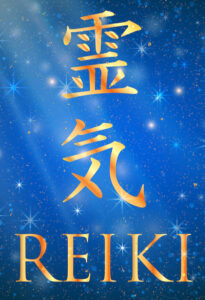 As holistic coaching grows in popularity and accessibility, I’ve noted that what this means varies considerably across the spectrum of holistic coaches – leadership, health, and life coaches, for example. For me, as a certified spiritual life coach and Master energy healer, holistic means fully integrating my practice. It also means I engage and support the whole person no matter what their coaching intentions are: straightforward decision-making or deep reflection. To illustrate, we can look at the benefits of Reiki healing energy that can transform the holistic coaching process and its outcomes. (For the benefits coaching brings to Reiki and other energy work modalities, see my blog post on Adding coaching to energy work.)
As holistic coaching grows in popularity and accessibility, I’ve noted that what this means varies considerably across the spectrum of holistic coaches – leadership, health, and life coaches, for example. For me, as a certified spiritual life coach and Master energy healer, holistic means fully integrating my practice. It also means I engage and support the whole person no matter what their coaching intentions are: straightforward decision-making or deep reflection. To illustrate, we can look at the benefits of Reiki healing energy that can transform the holistic coaching process and its outcomes. (For the benefits coaching brings to Reiki and other energy work modalities, see my blog post on Adding coaching to energy work.)
What is Holistic in Coaching Today
Definition of Holistic
The work holistic means “…. relating to or concerned with wholes or with complete systems rather than with the individual parts. holistic medicine attempts to treat both the mind and the body.” You’ll note the reference to medicine. This isn’t surprising because the term “holistic coaching” is most commonly used within the health industry, at least, in the United States.
How Is Holistic Coaching Used
Searching the internet, it appears the most common form of holistic coaching isn’t all that holistic. In coaching, the term holistic means considering a client’s health and/or personal or emotional life as it relates to professional or workplace issues. Sometimes body language and posture factor into the practice.
The National Institutes of Health (NIH) broadens the concept of holistic when it writes “Holistic medicine is an attitudinal approach to health care rather than a particular set of techniques. It addresses the psychological, familial, societal, ethical and spiritual as well as biological dimensions of health and illness.” While the focus is still health outcomes, it extends beyond health measures and embraces whole-person wellness – to the mind-body-spirit.
This blog looks beyond health. Instead, the implied endgame is balance and wellness throughout the whole person, not just positive health outcomes. whereby the term “spirit” encapsulates subtle life-force energy among other more commonly understood aspects of spirituality.
Reiki As a Mind-Body-Spirit Modality
This post assumes you are familiar with Reiki. If not, see my page Reiki Healing Energy, and/or search my Mind-Body-Spirit blog with the term “Reiki.”
As an expression of your subtle life-force energy, Reiki penetrates and works on all levels. Most people are familiar with how energy healing (e.g. acupuncture or yoga) influences the body’s energy centers or chakras. But, it can also have a pronounced effect on your bodily systems, emotions, thoughts and beliefs, and your interactions with people and even other living beings.
When Reiki is introduced to any perspective-taking or problem-solving situation or healing process, it goes where it’s needed regardless of real or imagined boundaries. In this way, it’s truly holistic.
Because this is a self-healing modality, it respects free agency and supports the highest and best interests of the recipient. In this way, it’s always supportive, complementary, and galvanizing.
The Benefits of Reiki In a Coaching Session
The above might seem abstract and vague if you haven’t experienced Reiki in action. So, let’s look at some common ways it influences the coaching process.
- Supports a more open and deeper connection between the practitioner/coach and the client
- Promotes stress reduction and relaxation, easing associated symptoms and allowing the client to be more present and engaged
- Facilitates inner reflection and the client’s ability to tap into their embodied wisdom and strengths
- Opens the focus of the client stimulating more open-mindedness, curiosity, creativity, and equanimity toward the self and current issues
- Clears stubborn and intractable conscious and subconscious blocks that obstruct the client’s perception, perspective, and ability to effectively address issues
- Enables the client to forge a stronger connection to past challenges and clear any dysfunctional relationship in the present
- Brings energy, originality, and commitment to problem-solving
- Creates a connection to or clarification of the client’s purpose and path to fulfillment, and
- This leads to more frequent and greater positive shifts
Of course, there are other ways to achieve some outcomes in a coaching session. For one, plenty of other effective energy-healing modalities and embodied practices can be introduced. However, arguably, Reiki engenders significant benefits to achieving not just holistic outcomes but better ones as well.
